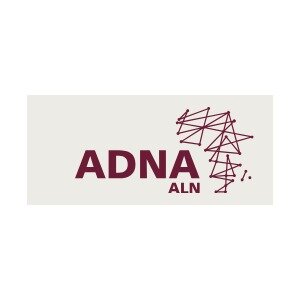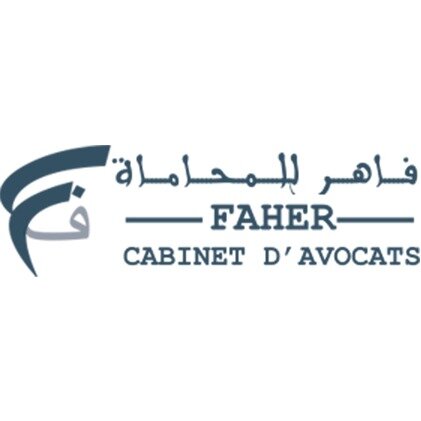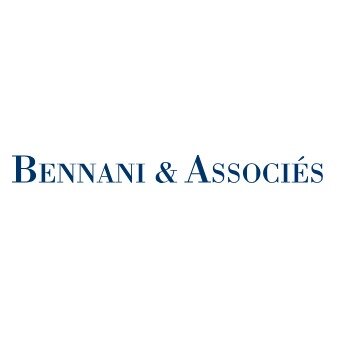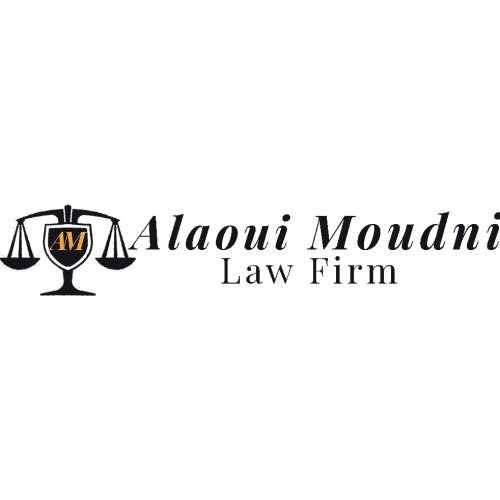Best ESG Advisory & Compliance Lawyers in Casablanca
Share your needs with us, get contacted by law firms.
Free. Takes 2 min.
List of the best lawyers in Casablanca, Morocco
About ESG Advisory & Compliance Law in Casablanca, Morocco
ESG Advisory & Compliance refers to legal guidance and support provided to organizations on matters related to Environmental, Social, and Governance (ESG) standards. In Casablanca, Morocco's largest commercial hub, businesses are increasingly expected to operate responsibly and align with both local and international ESG guidelines. ESG Advisory & Compliance law helps organizations understand, implement, and monitor practices that promote environmental sustainability, social responsibility, and sound governance. Legal experts in this field guide clients through compliance with local regulations, international best practices, and reporting requirements, ensuring that businesses can meet stakeholder expectations and avoid legal pitfalls.
Why You May Need a Lawyer
Navigating the landscape of ESG regulations in Casablanca can be complex. You may need a lawyer if you are:
- Starting a new business and seeking advice on incorporating ESG principles
- Subject to governmental or industry-mandated ESG disclosure requirements
- Facing possible fines or penalties for non-compliance with environmental or social standards
- Setting up a sustainability or corporate social responsibility program and needing verification of regulatory conformity
- Engaging in mergers, acquisitions, joint ventures, or partnerships that require ESG risk assessments
- Pursuing international investment or financing that requires ESG due diligence and disclosures
- Responding to stakeholder inquiries or crises involving environmental or social issues
- Interested in voluntary ESG certifications, such as ISO standards or green building labels
- Handling disputes involving ESG matters, including litigation or mediation
- Reviewing or drafting contracts that include ESG-related clauses or commitments
Local Laws Overview
In Casablanca, ESG-related regulations stem from a combination of Moroccan national laws, international commitments, and regional initiatives. Key aspects include:
- Environmental Laws: Morocco enforces a framework of environmental protection legislation, including the Law 11-03 on environmental protection and the National Charter for Environment and Sustainable Development. These laws set requirements for waste management, emissions, resource usage, and environmental impact assessments.
- Social Responsibility: Moroccan labor laws outline standards for working conditions, health and safety, non-discrimination, and employee rights. Businesses may also be guided by the National Human Rights Council and related social codes.
- Governance: Moroccan corporate governance rules are informed by the Moroccan Corporate Governance Code, obligations from the Casablanca Stock Exchange, and anti-corruption laws. There is growing pressure for transparency and robust risk management processes.
- Disclosure and Reporting: Publicly listed companies and some large enterprises must report on ESG issues according to local listing requirements and, in some cases, per international frameworks such as GRI or SASB, depending on investor and market demands.
- International Standards: Morocco is a signatory to several international agreements and has adopted United Nations Sustainable Development Goals (SDGs) into its development strategies. Businesses are expected to consider these standards where relevant.
Combined, these legal requirements mean that organizations in Casablanca must be proactive in understanding and implementing responsible ESG practices to remain compliant and competitive.
Frequently Asked Questions
What does ESG mean in the context of Moroccan law?
ESG stands for Environmental, Social, and Governance. In Morocco, it refers to practices and regulations that ensure organizations act responsibly towards the environment, maintain fair labor and social practices, and enforce strong governance structures.
Are ESG reporting and disclosures mandatory for all companies in Casablanca?
Not all. In general, publicly listed companies and those in regulated sectors may have mandatory ESG disclosure requirements, while others may adhere to voluntary standards or client-specific requests.
What are the consequences of non-compliance with ESG regulations?
Penalties can include fines, legal action, loss of business licenses, reputational damage, and reduced access to investment or contracts, particularly with international partners demanding ESG adherence.
How are ESG issues assessed in Morocco?
Through regulatory inspections, independent audits, stakeholder feedback, and monitoring by governmental agencies, often guided by both local laws and international standards.
Are international ESG standards recognized in Casablanca?
Yes. Many international standards including ISO 14001, GRI, and UN SDGs are widely acknowledged, especially by multinational companies, investors, and regulators.
What is the process for conducting an ESG compliance review?
An ESG compliance review usually begins with a risk assessment, followed by gap analysis, policy and procedure development, training, and ongoing monitoring and reporting with the help of legal and subject matter experts.
Can a lawyer assist with ESG dispute resolution?
Absolutely. Lawyers can represent businesses in negotiations, mediation, arbitration, or court if disputes arise due to ESG-related issues.
How can businesses prepare for future ESG regulations in Morocco?
By implementing a robust management system, staying informed about regulatory updates, training staff, and working with legal advisors to monitor risks and verify compliance with changing laws.
Does Morocco provide incentives for ESG-compliant businesses?
There are some incentives, such as access to green finance, priority for government contracts in specific sectors, and enhanced reputation which can attract investors.
Who oversees ESG compliance in Casablanca?
Oversight may involve multiple actors including the Ministry of Energy Transition and Sustainable Development, the Ministry of Employment and Social Affairs, financial market authorities, and local government agencies, in addition to sector-specific regulators.
Additional Resources
Individuals and businesses seeking further information or support on ESG Advisory & Compliance in Casablanca can contact or consult the following organizations:
- Ministry of Energy Transition and Sustainable Development
- Moroccan Capital Market Authority (AMMC)
- Casablanca Stock Exchange
- National Human Rights Council (CNDH)
- Moroccan Association for Corporate Social Responsibility (AMRSE)
- Morocco's Chamber of Commerce, Industry, and Services
- Professional associations and ESG-focused consultancies operating in Casablanca
- International organizations with offices in Morocco, such as UNDP Morocco
Next Steps
If you need legal assistance with ESG Advisory & Compliance in Casablanca, Morocco:
- Assess the specific ESG challenges or questions you face, such as compliance needs, reporting, disputes, or new business initiatives.
- Gather relevant documents and information such as contracts, licenses, audit reports, and correspondence with authorities.
- Consult a lawyer or law firm specializing in ESG or corporate compliance in Casablanca. Ensure they have experience in both local laws and international standards relevant to your operations.
- Schedule an initial legal consultation to review your situation and discuss possible strategies, responsibilities, and timelines.
- Stay informed on upcoming regulations, sector-specific ESG trends, and opportunities for improvement to minimize risks and enhance business value.
Expert legal guidance can help your business efficiently navigate Morocco's evolving ESG landscape, avoid legal pitfalls, and build a sustainable, competitive presence in Casablanca's market.
Lawzana helps you find the best lawyers and law firms in Casablanca through a curated and pre-screened list of qualified legal professionals. Our platform offers rankings and detailed profiles of attorneys and law firms, allowing you to compare based on practice areas, including ESG Advisory & Compliance, experience, and client feedback.
Each profile includes a description of the firm's areas of practice, client reviews, team members and partners, year of establishment, spoken languages, office locations, contact information, social media presence, and any published articles or resources. Most firms on our platform speak English and are experienced in both local and international legal matters.
Get a quote from top-rated law firms in Casablanca, Morocco — quickly, securely, and without unnecessary hassle.
Disclaimer:
The information provided on this page is for general informational purposes only and does not constitute legal advice. While we strive to ensure the accuracy and relevance of the content, legal information may change over time, and interpretations of the law can vary. You should always consult with a qualified legal professional for advice specific to your situation.
We disclaim all liability for actions taken or not taken based on the content of this page. If you believe any information is incorrect or outdated, please contact us, and we will review and update it where appropriate.

















